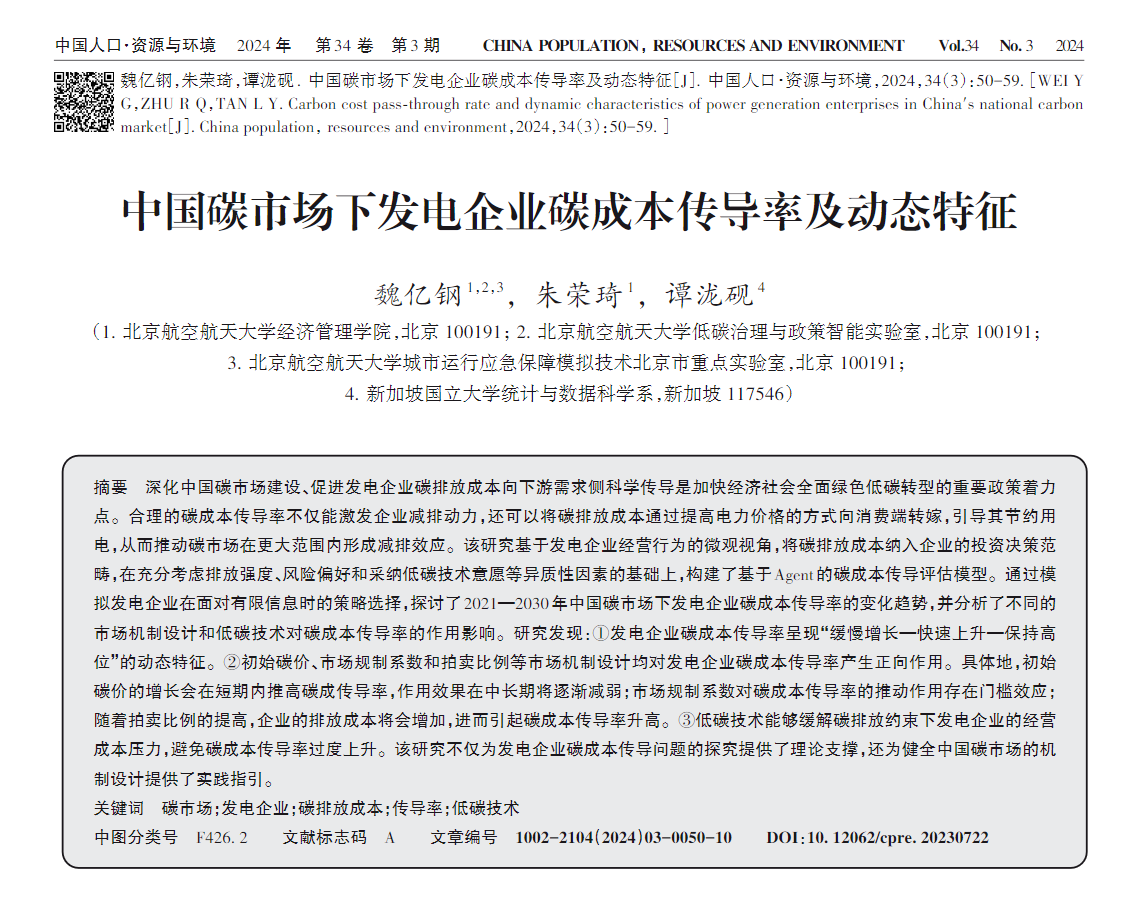
Basic Information
Title: Carbon cost pass-through rate and dynamic characteristics of power generation enterprises in China's national carbon market
Author(s): WEI Yigang*, ZHU Rongqi, TAN Longyan
Journal: 《中国人口·资源与环境》
Published: 2023.11
DOI: https://doi.org/10.12062/cpre.20230722
Abstract
Deepening the construction of China’s national carbon market promotes the adequate pass-through of carbon costs of power generation companies to the downstream demand side, which is an essential policy focus for accelerating the comprehensive green and low-carbon transition of the economy and society. A reasonable carbon price pass-through rate can not only stimulate enterprises to reduce emissions but also convey carbon emission costs to consumers by raising electricity prices, guiding them to save electricity, and thereby promoting the carbon reduction effect in a broader range. This study, from a micro-perspective of power generation companies’ operational behavior, incorporates carbon emission costs into the investment decision-making scope of power generation companies. Taking into full account the heterogeneity factors of enterprises such as emission intensity, risk preference, and willingness to adopt low-carbon technologies, an agent-based carbon cost pass-through rate evaluation model was constructed. By simulating the multi-strategy selection behavior of power generation companies facing limited information, this study examined the dynamic trend of the carbon cost pass-through rate of power generation companies in China's national carbon market from 2021 to 2030 and analyzed the impact of different market mechanism designs and low-carbon technologies on the carbon cost pass-through rate. The study found that: ① The carbon cost pass-through rate of power generation companies presented a ‘slow growth-rapid rise-maintaining a high position’s change feature. ② Initial carbon price, market regulation coefficient, and auction proportion were all positively related to the carbon cost pass-through rate of power generation companies. Specifically, as the initial carbon price increased, the carbon cost pass-through rate became higher only in the short term, and the effect would gradually weaken in the medium and long term; the market regulation coefficient had a threshold effect on promoting the carbon cost pass-through rate; and the increase in auction proportion would increase the marginal emission cost of enterprises, leading to an increase in the carbon cost pass-through rate. ③ Low-carbon technology could alleviate the operational cost pressure of power generation companies under carbon emission constraints, effectively slowing the rise of the carbon cost pass-through rate. This study not only provides theoretical support for exploring the carbon cost pass-through problem of power generation companies but also offers practical guidelines for perfecting the mechanism design of China’s national carbon market.